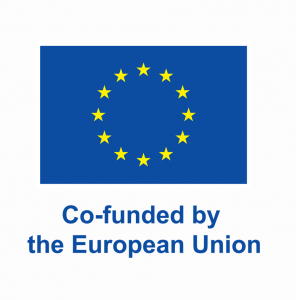15 media organizations successfully completed IPI’s Transition Accelerator, an innovative six-month programme that provided grant funding, training, coaching and networking opportunities to support independent newsrooms in developing audience-centred solutions to organizational challenges.
[Now it’s your turn: Apply for IPI’s Local News Accelerator – a global innovation training, networking and learning programme for news organizations covering local and niche audiences.]
15 newsrooms from 11 countries participated in the programme, with each one spearheading innovative plans to connect with audiences, develop new products and explore sustainable revenue streams.
Some of the projects leveraged tech solutions: Hromadske Radio used text-to-speech to create low-effort audio products; an interactive platform allowed readers to send tips securely to Montenegro’s LUPA, and in Slovenia, Večer Mediji’s analytics software brought colleagues on board with the transition to digital-first.
Other projects focused more on strategies for audience engagement and user research, also achieving clear successes: Romania’s newsletter-first Iașul Nostru doubled its subscriber base and Gen, știri increased comments on its TikTok channel by over 200 per cent. Spain’s El Orden Mundial enhanced internal synergies to redefine its news with multimedia content.
The experience of our participating newsrooms in onboarding innovation methodologies also provide lessons for the wider media community.
Innovation is not always about building something new. When Spanish fact-checking newsroom Maldita surveyed their audience, they found that they already had content that met the most-mentioned needs. What they needed was a seamless platform to get that content in front of community members at the appropriate time.
The accelerator focused on projects that would boost newsroom growth and sustainability, but we also saw the importance of recognizing value beyond the purely financial. Austria’s andererseits initially saw events as a revenue stream, and organized several in-person community meet-ups. But they realized the true benefit of events was in engagement and retention, so they switched focus from sponsorship to low budget community events that required few resources but still provided that value.
A recurring theme from the participating newsrooms was the importance of being part of a cross-border cohort. As Press Freedom Foundation in Serbia said: “Being able to meet other independent magazines and newspapers from across Europe as part of the accelerator, and sharing our experiences with them, gave us great strength and energy.”
Read more about each newsroom’s inspiring innovation journey in the stories below:
How Ukraine’s Hromadske Radio reached audiences during war
Gen, știri explains the world on TikTok
Transition Accelerator: El Orden Mundial is Redefining News with Multimedia Content
How Iașul Nostru doubled its newsletter subscribers
Transition Accelerator: Press Freedom Foundation develops community engagement tool
Maldita in Spain overhauls onboarding process to grow community
Italy’s RADAR Magazine launches membership to cover climate
Slovenia’s Večer Mediji’s transforms its subscription offering
The newsrooms were chosen by an independent jury of European media innovators from Spain, Norway, Portugal, Slovakia and Hungary.
The goals of the programme were to empower participating independent newsrooms in designing and delivering new products, storytelling techniques and revenue streams that put their audiences in the centre.
IPI thanks all 15 participating newsrooms for the enthusiasm and dedication that they brought to the accelerator programme.
Sign up for our newsletter to learn more about IPI’s media innovation and sustainability work.
The Transition Accelerator is part of the Media Innovation Europe (MIE) project, co-funded by the European Commission. The programme is led by the International Press Institute, implemented in collaboration with Thomson Media, the Media Development Foundation and BIRN and is intended to empower media outlets as they navigate the digital transition, giving them journalistic tools and skills in diverse products and business structures in order to reach audiences and bring sustainability.




